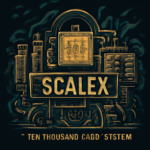Key Points
- China’s MIIT is accelerating the development and deployment of AI large models, focusing on both general-purpose and industry-specific applications.
- The focus is on building high-quality industrial datasets and integrating AI into key sectors like manufacturing, electronics, and raw materials across the entire value chain.
- AI is seen as critical for empowering ‘New Industrialization’ (Xinxing Gongyehua 新型工业化) by upgrading manufacturing processes and key industries.
- The MIIT plans to cultivate leading enterprises, support ’Zhuanjing Texin’ SMEs specialists, build open-source communities, and accelerate AI standards development.
China’s Ministry of Industry and Information Technology (MIIT) is gearing up to significantly strengthen the development and rollout of Artificial Intelligence (AI) large models, marking a pivotal move for the nation’s tech landscape.
Get ready for a deeper dive into both general-purpose and industry-specific AI applications.
Recent reports highlight the MIIT’s focus on accelerating the creation of high-quality datasets specifically tailored for the industrial sector.


Find Top Talent on China's Leading Networks
- Post Across China's Job Sites from $299 / role
- Qualified Applicant Bundles
- One Central Candidate Hub
Your First Job Post Use Checkout Code 'Fresh20'

Building a Complete AI Ecosystem
Xie Shaofeng (Xie Shaofeng 谢少锋), the Chief Engineer at MIIT, pointed out that China isn’t starting from scratch.
The country has already cultivated a comprehensive AI industrial ecosystem.
This ecosystem covers crucial layers:
- Foundational tech
- Frameworks
- AI Models
- Application layers
We’re seeing Large AI models making quick inroads into key sectors like:
- Electronics
- Raw materials
- Consumer goods
These models are being deployed across the value chain, including:
- Research and Development (R&D)
- Design processes
- Pilot testing
- Manufacturing operations
- Operational management

ExpatInvest China
Grow Your RMB in China:
- Invest Your RMB Locally
- Buy & Sell Online in CN¥
- No Lock-In Periods
- English Service & Data
- Start with Only ¥1,000

Manufacturing: The AI Proving Ground
Manufacturing stands out as a critical arena for AI technology deployment, according to Xie Shaofeng (Xie Shaofeng 谢少锋).
The MIIT’s next phase involves a full-court press to use AI for empowering what’s termed ‘New Industrialization’ (Xinxing Gongyehua 新型工业化).
This strategy focuses on two key angles:
- Supply Side: Developing more powerful and specialized AI tools and models.
- Application Side: Driving adoption and intelligent upgrades across the board.
The goal is to infuse AI into:
- The entire manufacturing process
- Key industries
- Specific end-products

Resume Captain
Your AI Career Toolkit:
- AI Resume Optimization
- Custom Cover Letters
- LinkedIn Profile Boost
- Interview Question Prep
- Salary Negotiation Agent

Fostering Growth and Standards
Beyond direct application, the MIIT plans to nurture the ecosystem by:
- Cultivating leading industry enterprises.
- Supporting the growth of ‘Specialized, Refined, Unique, and New’ (Zhuanjing Texin 专精特新) Small and Medium-sized Enterprises (SMEs).
- Building robust AI open-source communities to foster collaboration.
- Accelerating the development of critical and urgently needed AI standards.
This coordinated effort underscores China’s commitment to embedding AI deeply within its industrial core, pushing for upgrades and maintaining competitiveness through advanced AI large models.

FAQs
What is China’s MIIT currently focusing on regarding AI?
The MIIT is focusing on strengthening the research, development, and deployment of both general-purpose and industry-specific AI large models. A key part of this is accelerating the build-out of high-quality datasets for industrial applications.
What are ‘industry-specific large models’?
These are large AI models specifically trained and fine-tuned for tasks within particular industries (like manufacturing, electronics, or raw materials), as opposed to general-purpose models (like ChatGPT) designed for a wide range of tasks.
How is AI already being used in Chinese manufacturing?
AI large models are being implemented in sectors like electronics, raw materials, and consumer goods. Applications span R&D, design, pilot testing, manufacturing processes, and operational management.
What is ‘New Industrialization’ (Xinxing Gongyehua 新型工业化)?
‘New Industrialization’ refers to China’s strategy for modernizing its industrial sector, heavily leveraging advanced technologies like AI to upgrade manufacturing processes, key industries, and products for greater efficiency and innovation.
What are ‘Zhuanjing Texin’ SMEs?
‘Specialized, Refined, Unique, and New’ (Zhuanjing Texin 专精特新) refers to a category of high-quality SMEs encouraged by the Chinese government. These companies typically focus on niche markets, possess strong R&D capabilities, utilize unique technologies, and produce innovative products. The MIIT aims to cultivate these types of firms within the AI sector.
References
- Source: Xinhua News Agency
- Ministry of Industry and Information Technology (MIIT) – Official English Site
- China vows to catch up with US in core AI technology by 2025-state media – Reuters
- China drafts new rules for LLMs to promote AI development while ensuring it is ‘controllable’, sources say – South China Morning Post





